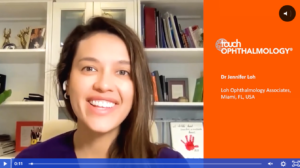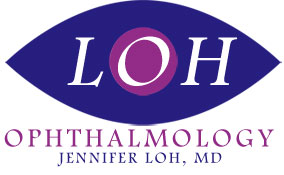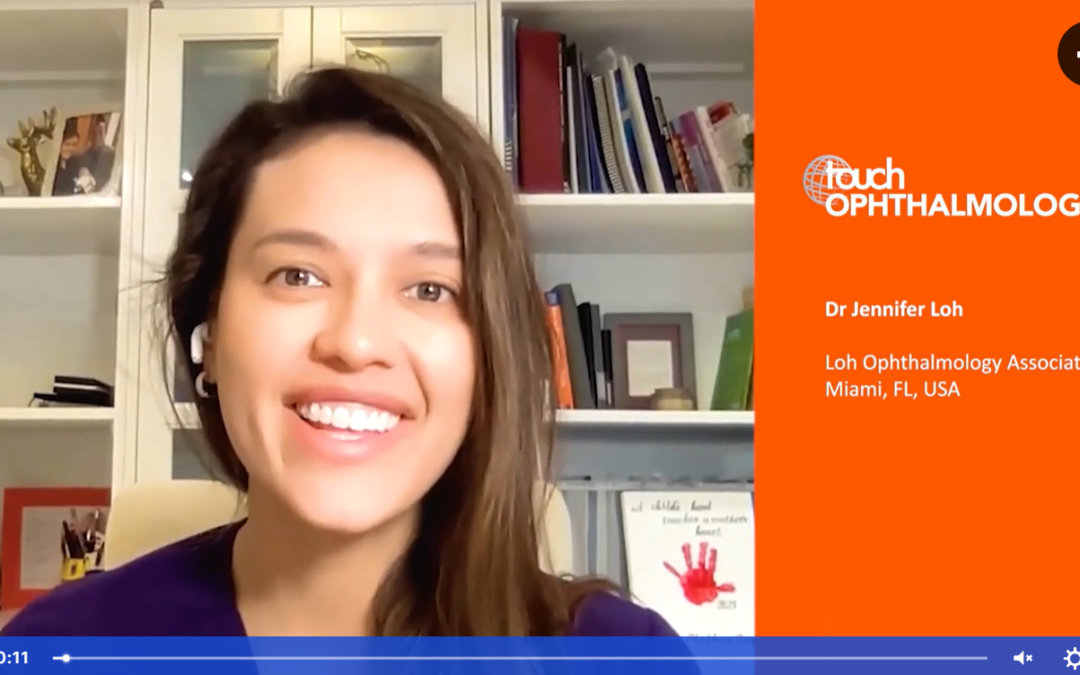As patients, we are not too familiar with Certified Medical Education but it’s really important when choosing a doctor or surgeon to know that they are ‘up to date’ on all of their specialties latest and greatest innovations and medical treatments!
Not only is Dr. Loh up to date, she teaches CE and CME!
 Check out her latest video – from Touch Ophthalmology. Dr. Loh and Dr. Elizabeth Yeu both delivered lectures. Click here and then on the left hand navigation, click on Dr. Jennifer Loh to learn more about what she suggests her colleagues, other cataract and refractive surgeons do when counseling their cataract patients before they have cataract surgery.
Check out her latest video – from Touch Ophthalmology. Dr. Loh and Dr. Elizabeth Yeu both delivered lectures. Click here and then on the left hand navigation, click on Dr. Jennifer Loh to learn more about what she suggests her colleagues, other cataract and refractive surgeons do when counseling their cataract patients before they have cataract surgery.This is a very important topic because cataract surgeons need to choose the implantable ocular lens that goes in your eye as a patient and that lens calculation has to be pretty precise to yield the kind of vision you are looking for!
Dr. Loh explains the importance of efforts ahead of time that surgeons should take to assess patients in depth prior to surgery. Several of these things include:
- Ocular Surface & Dry Eye: She spends quite some time in this course explaining the importance of assessing the ocular surface of her patients’ eyes prior to surgery and diagnosing dry eye. She shares that in her experience many patients don’t even feel symptoms of dry eye and have no idea they have it when they come in for a cataract evaluation with her!
- Dry Eye can very much affect the IOL lens measurements for cataract surgery.
- Previous LASIK or refractive surgery will also play into the lens choice as there are some contraindications when a patient has had previous refractive surgeries like LASIK or PRK. If a patient has had a procedure like this at some point in their life prior to cataract surgery, it will affect which IOL their surgeon can select for them.
- The importance of TESTING – testing and diagnostics is so important along with counseling the patient properly. Make sure your surgeon has the the most state of the art testing and equipment available at their office!
- Ocular Pathology: Glaucoma, AMD, or epiretinal membranes; it’s so important for a surgeon to look into the full health of the eye – what other things does a patient have going on? Do they have glaucoma, high pressures, etc? All of these things will affect which lens they can ultimately have in cataract surgery.
- Quality of Vision – or the Patient’s Target Vision – what is the patient’s goal, what do they want to see or improve their vision to see? It may seem simple but many offices spend fortunes on the right questionnaires when all a surgeon should really do is spend time with that patient and ask ” What do you wear your glasses for currently?” The biggest mistake a cataract surgeon could make is assuming a patient wants to see something when that’s not the patient’s goal for their vision. If surgeons ask the right questions to their patients, it can yield a much better result!
- Patient Communication – and the importance of CONSISTENCY throughout the process; Dr. Loh shares that she has handouts in her office that she shares with her patients in the waiting room or before their visit, the consultation communication is most key during the evaluations and then the post consultation resources she shares with patients when they leave that they can share with their spouses/partners, family, loved ones and friends.
All in all, a surgeon’s cataract surgery process is very individualized and their IOL selection is as well, but it is truly perfected with the right kind of communication with their patient, planning and advanced assessments and testing prior to surgery! If you are ready to have cataract surgery or have been diagnosed with a cataract, call us at 786-558-8542 today (or inquire via email at info@jenniferlohmd.com) and schedule a cataract evaluation with Dr. Loh!

